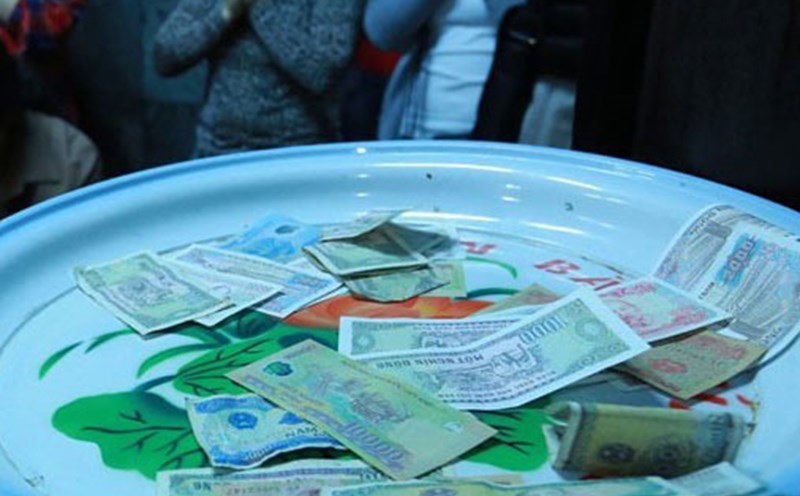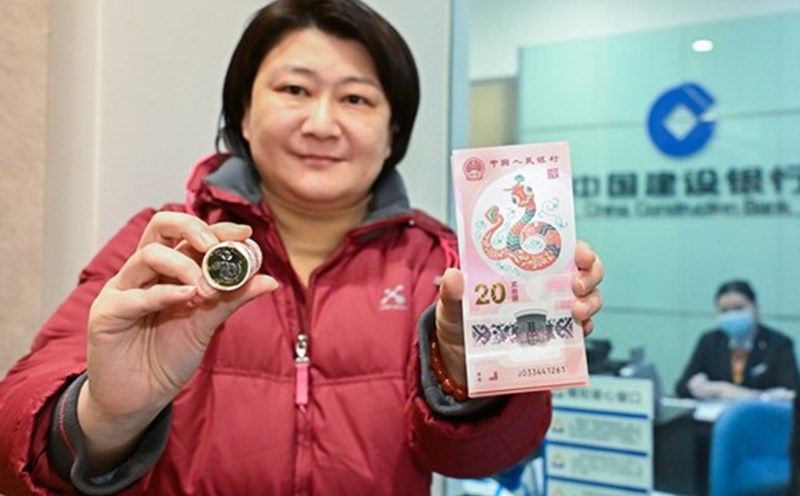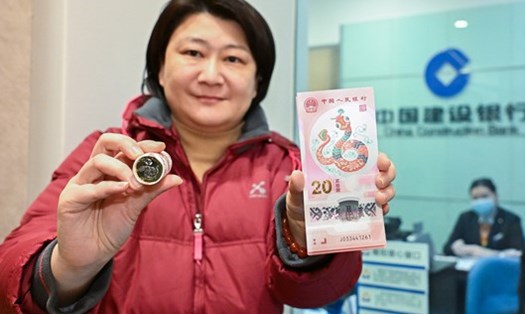Exciting coin exchange service
On social media groups, the service of exchanging small bills has been "hot" since the beginning of December. The exchange fee tables are publicly posted, ranging from 3% to 15% depending on the denomination and quantity. For example, the fee for exchanging small bills worth 1,000 VND can be up to 15%, while larger denominations such as 100,000 VND or 200,000 VND are only about 3%.
Social media accounts such as Facebook and Zalo are flooded with information about this service. Ms. Nguyen Thu Ha (Hanoi) shared: "Every year I have to exchange small bills to give lucky money to my children and grandchildren and to go to the temple. Although the exchange fee is high, finding a new source of money is not easy."
Currency exchange fees increase sharply near Tet
One notable feature is that the exchange fee skyrockets as Tet approaches. Units often explain that supply is limited, especially for small denominations such as 1,000 VND and 2,000 VND. A service provider in Tay Ho district, Hanoi said: "Exchanging money close to Tet usually requires an advance order, because the amount of new money is not much. Those who are slow will have to pay high fees."
In fact, many money changers are bank employees. They often receive large amounts of new money through "internal relationships" or through distribution channels from the bank itself.
An anonymous source revealed that bank employees have the advantage of accessing new money before Tet. Many people trust exchanging money through bank employees because of their reputation.
"80-99% Cashback" - Attractive Product
In addition to brand new money, this year's money exchange service has also developed a product called "80-99% used money" - used but almost new bills. This type of money is suitable for lucky money or for use during Tet holidays without having to pay high fees like new money. Ms. Mai Thi Ngoc (Hanoi, name changed) shared: "Used money is cheaper, still beautiful, very convenient for those who need large quantities."
The exchange fee for flipping money usually ranges from 8% to 10%, lower than for new money but still a significant source of income for the providing units.
Risks from informal services
Although the need to exchange money is legitimate, many consumers have encountered problems when using unofficial services. Common risks include receiving counterfeit money, being forced to pay higher exchange fees than originally agreed, or losing deposits when units "evaporate" right before Tet.
Mr. Tran Van Hung (a customer who was scammed) shared on the Redeem Money group, saying: "Last year I exchanged 5 million VND in small bills, depositing 500,000 VND in advance. But when the appointment came, the unit turned off the phone and blocked communication. I lost my money and didn't know who to call."
Money exchange activities: Legal regulations and potential risks
According to Circular 25/2013/TT-NHNN of the State Bank of Vietnam, only organizations permitted by the State are allowed to conduct money collection and exchange activities, including: the State Bank, branches of the State Bank, credit institutions, branches of foreign banks and the State Treasury.
Lawyers warn that any act of exchanging new money or small change for the purpose of profiting from the difference is illegal. Individuals and organizations that are not allowed to exchange money may be subject to administrative or more serious penalties depending on the severity of the violation.
Money exchange activities via social networks and channels of unknown origin pose many risks, including:
Counterfeit money, invalid money: Subjects take advantage of people's high demand to put counterfeit money, money of unknown origin into circulation.
Lack of transparency in transactions: Most freelance money exchange services have no headquarters and are anonymous, making it difficult to handle disputes or risks.
Illegal profiteering: Charging currency exchange fees of up to 15% is illegal, creating illegal profits on people's legitimate needs.











